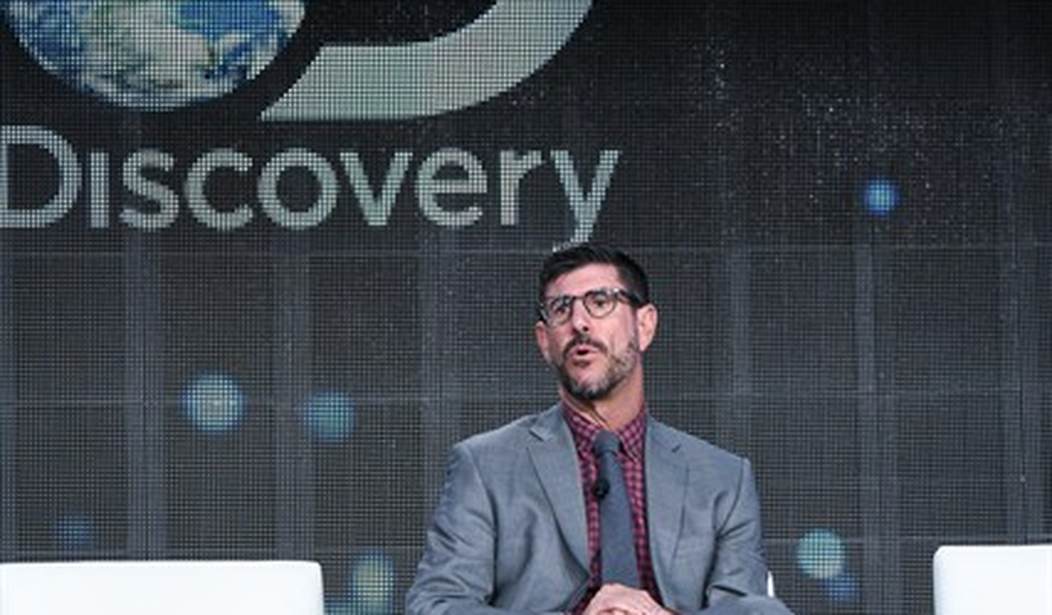After two and a half years at the helm of Walt Disney Studios, Chairman Rich Ross, 50, stepped down on Friday. Ross’ departure comes on the heels of the high-profile failure of the sci-fi/fantasy epic John Carter. The $250 million film, which Disney hoped would be the year’s first blockbuster, only earned $269 million worldwide. After distribution and marketing expenses, John Carter‘s dismal take equals a loss of $80-120 million for Disney.
Ross issued a statement attributing his departure to the idea that he wasn’t the right man for the job:
“The best people need to be in the right jobs, in roles they are passionate about, doing work that leverages the full range of their abilities,” he said. “I no longer believe the chairman role is the right professional fit for me.”
Disney CEO Robert Iger also released a statement praising Ross and wishing him well:
“Rich Ross’s creative instincts, business acumen and personal integrity have driven results in key businesses for Disney,” Iger said. “I appreciate his countless contributions throughout his entire career at Disney, and expect he will have tremendous success in whatever he chooses to do next.”
After stints at Nickelodeon and FX, Rich Ross came to Disney in 1996, where he served as vice president of programming and production, and he rose to president of Disney Channels Worldwide in 2004. As head of Disney Channels Worldwide, Ross was responsible for such brands as Playhouse Disney, Disney XD, Jetix, and Radio Disney.
Ross helped Disney Channel become the kids-and-tweens juggernaut that it is today. He launched the Disney Channel Original Movie franchise, which spawned enormous hits like the High School Musical and Camp Rock series. Radio Disney became a stepping stone for pop music success. Under Ross’ leadership, Disney Channel produced phenomenally successful shows like Hannah Montana, The Suite Life of Zack & Cody, Phineas & Ferb, and Wizards of Waverly Place. Playhouse Disney (now Disney Junior) increased its dominance under Ross as well.
The Walt Disney Company promoted Ross to chairman of Walt Disney Studios in 2009. Ross walked into his new position with the aim of trimming the fat from the studios and transforming them into lean, mean hit-producing machines. He cut several potentially costly projects from the development schedule, including Wild Hogs 2. Under Ross, Disney sold its prestigious Miramax brand in 2010. He closed Robert Zemeckis’ motion-capture studio, a studio whose final effort, 2011’s Mars Needs Moms, turned into a dismal failure.
Some insiders say that Ross’ biggest cost-cutting mistake came down to marketing and an inability to promote quality product:
To make matters worse, Ross either was directed by Iger or sold himself to Iger on the fact he could cut costs in staffing and marketing. In turn he basically gutted the entire marketing department attempting to shake things up. Instead, he brought in a new head of marketing with no movie business experience (MT Carney) and saddled her and the company with too few people in creative, media or publicity to fashion engaging campaigns.
To be sure, there were plenty of successes under Ross — after all, this is Disney. Many of those successes, including Secretariat and Tangled, began as part of the development slate of Ross’ predecessor, Dick Cook. Franchise films like Pirates of the Caribbean: On Stranger Tides performed well, and The Help (a Disney-distributed DreamWorks production) and The Muppets became both critical and box-office hits. Of course, the biggest smashes at Disney during his tenure belonged to Pixar and Marvel, existing studios that Disney bought out.
Even with such Disney-level success, the Ross era at the studios remains marred by failures — some of them high-profile bombs. Prince of Persia was among the first flops of the Ross era, though it technically belonged to Cook. Prom, an attempt to transfer Disney Channel’s teen appeal to the big screen, failed to lure moviegoers, and even Pixar’s Cars 2 was a disappointment.
The straw that broke the camel’s back just happened to be John Carter. Disney had high hopes for the project,
beginning the hype as early as 2008. Though Cook initially chose to develop the property, the ultimate responsibility for the final product fell to Ross. The film’s production lengthened, and the budget ballooned to $250 million. Weeks before the premiere, bloggers began to wonder if John Carter was headed for failure.
We’ve seen the numbers and know that John Carter turned out to be a flop, but why did it fall so hard? The movie defied easy description — believe me, I tried — so was it a failure of marketing? Did Disney give wunderkind Andrew Stanton too large a leash, and did the production spin out of control? Was it too old-fashioned a story to translate into a modern action fantasy? These questions defy easy answers, but all of them point directly to Rich Ross. Ross made a big bet on John Carter, and it cost him his job.
The question is, where does Disney go from here? The studio hasn’t immediately named a successor, but industry insiders have already begun to speculate:
Word is that Disney is speaking to DreamWorks’ Stacey Snider (former head of Universal Studios), ex MGM head Mary Parent (who got a raw deal when the studios money ran out right when she started) and current Walt Disney Animation head and Pixar Chief John Lassiter [sic].
Regardless of the direction Disney chooses to take, we won’t see a new studio chief’s development slate come to fruition for a couple of years. It will take a while to see whether new blood will bring new ideas or make the same mistakes. Will the next head of Walt Disney Studios learn from Rich Ross’ failures?










Join the conversation as a VIP Member